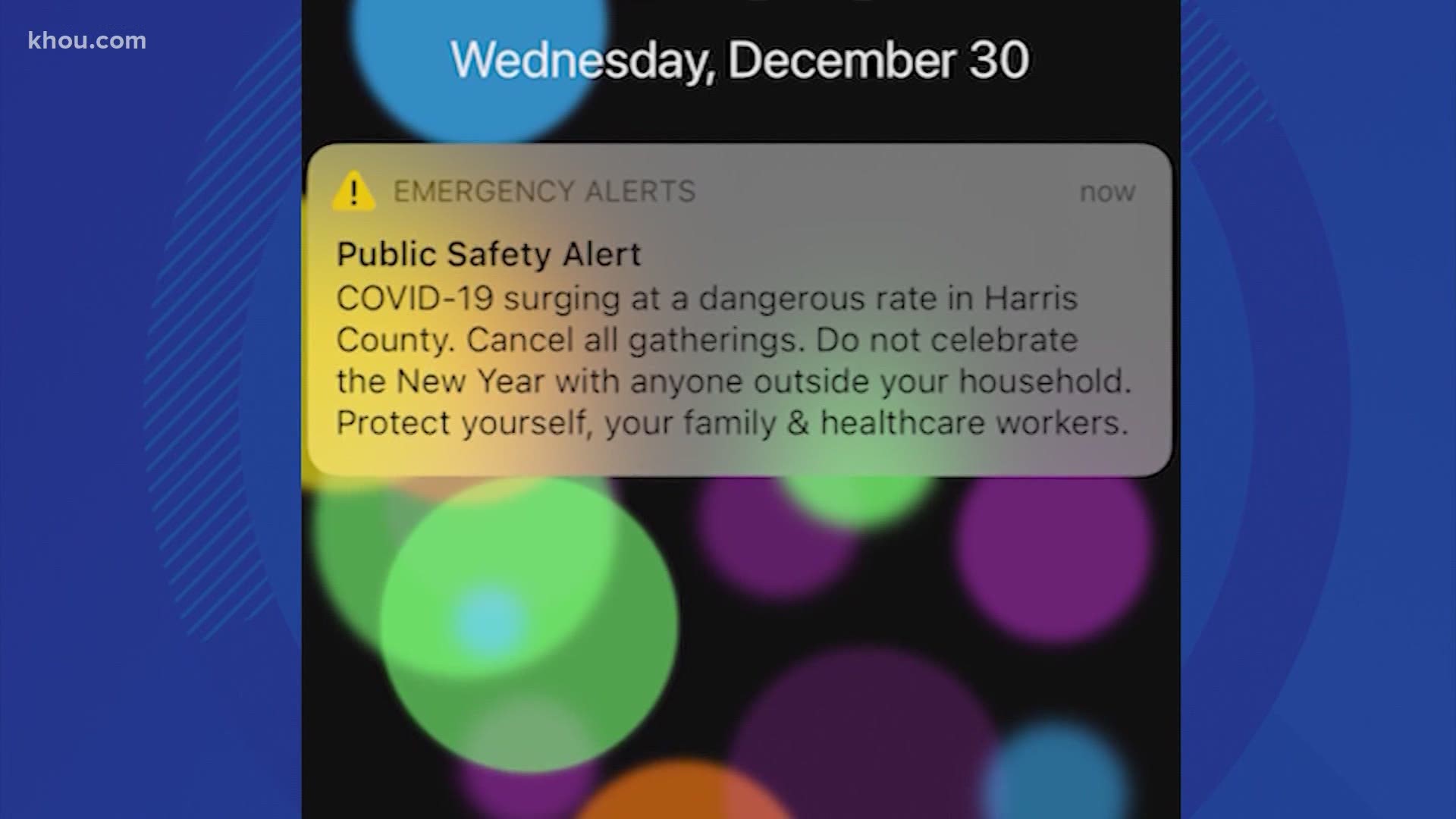HOUSTON — Harris County issued a public safety alert Wednesday afternoon telling residents not to celebrate the New Year’s holiday with anyone outside of their household.
The alert states that COVID-19 is surging at a dangerous rate and that residents should cancel all gatherings for the holiday, urging them to “protect yourself, family and healthcare workers.”
As the New Year approaches there are growing concerns about how New Year's Eve celebrations could lead to a deadlier COVID-19 surge and start to 2021.
"The concern for New Years Eve is totally different," said Dr. Ali Mokdad. "It's a different kind of celebration. People celebrate with friends, family and sometimes people they don't know. It could be a super spreader event on top of what you're seeing in Texas."
Dr. Mokdad is a part of the University of Washington team behind a leading COVID-19 model the White House has relied upon on throughout the pandemic. That model points to a worsening situation in Texas, much worse than the summer surge.
"Right now as the cases are increasing, we're not seeing a rise in the prevalence of wearing masks and mobility is increasing," Mokdad said.
Fewer masks and more people on the move, it's been a crippling combo that fueled the winter surge in Texas. More than 60 percent of the state's ICU beds are being used for COVID patients now.
And the peak is still to come. It's expected on Jan. 9.
"The main concern in Texas is hospital capacity," Mokdad siad. "Many hospitals are facing a shortage of ICU beds. If you put such a pressure on hospitals we may have to start referring patients to other hospitals far from where they live."
And if hospitalizations climb to critical levels, deaths will follow. The model predicts more than 35,000 deaths in Texas by Feb. 1. But if more than 95 percent of the population were to wear a mask, nearly 2,000 lives could be saved.
"Mask 95 percent wearing will do much better between now and April 1 especially when compared to the rapid rollout of the vaccines simply because we don't have enough vaccines," Mokdad said.
The vaccine rollout is moving slower than expected and experts predict we won't see an impact until later in 2021.
"It's very important to take action because it will be much worse in January," Mokdad said.

